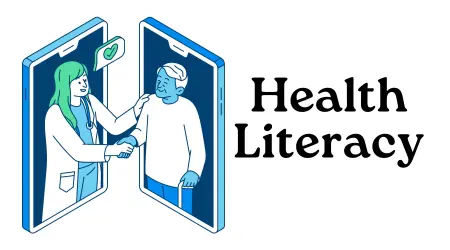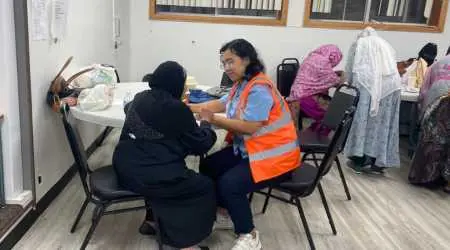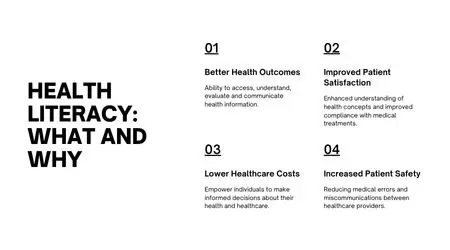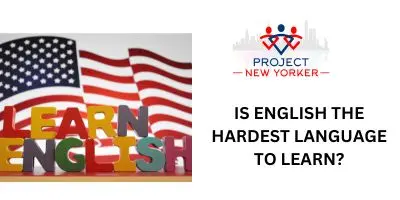What is Health Literacy and Why is it Important?
Growing up in a Bangladeshi immigrant community, many of us face challenges, such as limited English language, cultural differences, and a lack of health literacy. It is important we support one another as we aim for a healthier and more vibrant lifestyle for our mothers, fathers, aunts, uncles, etc. Health literacy plays an important role as it will help in making informed health-related decisions for ourselves and others.

What is Health Literacy?
Understanding how to stay healthy, prevent issues, and effectively manage health challenges is what health literacy is all about. It empowers us to make informed decisions about our well-being and ensures we can follow through with treatments when needed.
Here are two kinds of health literacy:
Personal health literacy: It refers to the ability of individuals to find, understand, and make use of healthcare information and services available to them. Examples: understanding your doctor’s care instructions, understanding the dosage of your prescriptions, and the ability to confidently arrange your healthcare needs.
Organizational health literacy: It refers to an organization allowing individuals to find, understand, and make use of healthcare information and services available to them. Examples: helping with organizing your health appointments, and making sure documents are in the desired language and format.
Promoting health literacy goes beyond attending annual check-ups or going to clinics; it is about creating a healthier life, with the appropriate information available to us. A major advantage of health literacy is the prevention of health issues.
Why is Health Literacy so Important?
Health Literacy is important because it empowers people to take responsibility for their health and well-being. In Southern Queens, a community needs assessment survey was conducted by Project New Yorker and it revealed that 17.1% of the population has a household yearly income of 10,000-19,000. This means that people do not have disposable income to go towards medical costs. Therefore, there is a need to have strong health literacy, which gives you the ability to understand your health conditions, treatment options, and medications. Health literacy can reduce costs in healthcare by creating clear communication about your health issues with your provider. This will prevent the chances of people getting unnecessary or expensive medical services. For example, when you understand your health it will lead to a decrease in hospital or emergency care visits, saving you cost and time.

One of the biggest challenges in getting women’s health and reproductive healthcare services in southern Queens is long wait times. As a woman, I have been forced to wait several hours to get just one appointment. Approximately 37.7% of women experience this obstacle; hence an increased understanding of health literacy results in less likely to visit clinics more than once to figure out your given health conditions. This empowers patients to effectively manage their own health conditions and improves health outcomes. This will help in navigating any health-related challenges that may arise at any given moment, eventually smoothing into a faster recovery.
Why Do We Have a Health Literacy Problem?
You may wonder why there is a health literacy problem in the United States. This often happens when organizations or people provide health information that is too complicated to understand. This creates a barrier to understanding your health, hence a health literacy problem. Many people are expected to figure out their health issues which can be overwhelming and confusing.
If English is not your first language, what does health literacy mean for you?
The truth is, that navigating the world of medical information can be very challenging. The healthcare field is filled with various complex terms that can be overwhelming. This especially occurs when interacting with physicians and nurses as 66.6% of the population in southern Queens speaks Bangla versus English at home. In order to take advantage of health literacy, we must gain the skills necessary to overcome these communication barriers. Proficiency in health literacy empowers us to actively manage our own health. Being informed about healthcare decisions and having strong communication skills will give you the power to advocate for yourself in medical settings. Improved health literacy will allow people to face health challenges, resulting in better overall health outcomes.
How to Improve Health Literacy
Advice/recommendations to improve your own health literacy:
- Ask yourself questions to be more aware and educated on your health.
- If health professionals are using terms that are confusing, do not hesitate to ask questions for clarification.
- Use reliable resources to help you make informed decisions.
- Take notes during appointments for future reference.
- Read the provided information given from clinics/hospitals and speak up when you feel uncertain.
- Bring a trusted person or family member to appointments for support and additional help.

Health literacy empowers us to make educated decisions regarding our health and healthcare. The benefits of understanding preventive care encourage early health detection, which reduces health disparities and increases patient empowerment. A rise in health literacy leads to a more efficient and effective healthcare system, therefore, we strongly encourage you to advocate and promote health literacy for a brighter and healthier future.
Additional Resources
If you are interested to attend Health programs you can also check our Health Literacy page also.
NNLM creates and provides resources that can support members of the community to improve their health literacy. These resources include:
- Digital Health Literacy Tools from NNLM
- This platform aims to give people the tools and digital literacy skills needed to access and evaluate health information online.
- https://allofus.nnlm.gov/digital-health-literacy
- Evaluating Internet Health Information is a tutorial from the National Library of Medicine and MedlinePlus guiding people on how to evaluate a wide range of sources on the internet. This will help in finding reliable and trustworthy sources and show how to make proactive decisions about your health.
Recap
- Health literacy is understanding how to stay healthy, prevent issues, and manage health challenges.
- Health literacy is important because it will reduce costs and may prevent you from getting unnecessary or expensive medical services.
- You are not alone! Many people experience a lack of health literacy in the United States.
- Even if Bangla is your first language, having health literacy will greatly improve your healthcare decisions and give you the power to fight for yourself in medical settings.
- Practicing the advice/recommendations will increase your skills.
- Check out the additional resources!



